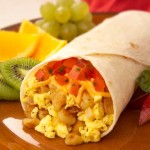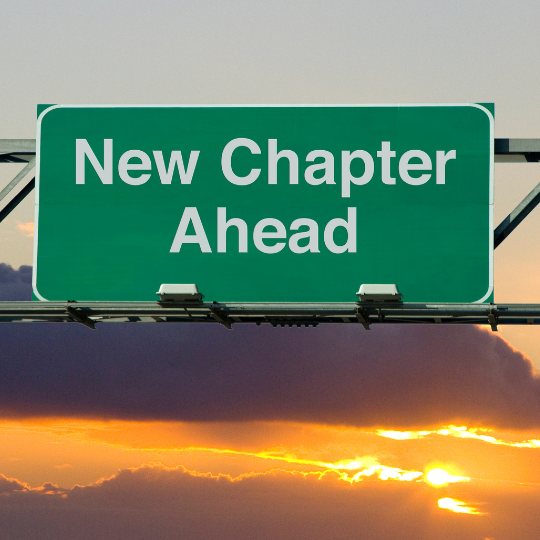Is Breakfast REALLY The Most Important Meal?
 While I grew up, I constantly heard that breakfast was the most important meal of the day. If you didn’t eat a proper breakfast, your day was pretty much written off and you’d never amount to anything. Conventional wisdom tends to carry a lot of weight. When you’ve heard it from umpteen different sources over the span of decades, you really don’t have many reasons to doubt what you’ve been told.
While I grew up, I constantly heard that breakfast was the most important meal of the day. If you didn’t eat a proper breakfast, your day was pretty much written off and you’d never amount to anything. Conventional wisdom tends to carry a lot of weight. When you’ve heard it from umpteen different sources over the span of decades, you really don’t have many reasons to doubt what you’ve been told.
That might have been true except for the indisputable fact that I always tended to feel better when I let the first 2-4 (and sometimes more) hours of the day pass before finally settling into eating a light meal. My mornings always felt ideal when I used the time to pass toxins and waste, hydrate well and, often times, exercise.
Over the last 15 years, I slowly came to a lifestyle where, contrary to conventional wisdom, I tended to skip breakfast altogether and focus on two moderately sized meals per day. Sometimes, I’d feel inclined to “graze” on 4-5 small meals over the day, with a “meal” possibly being two pieces of fruit. Unknown to me at the time, I was naturally falling into an eating pattern that represented a typical evolutionary pattern of food availability and scarcity cycle.
Once I realized this, I looked into breaking fast and I realized that the norms of our Western food culture encouraged us to fill up on grains. This is exactly the opposite of what our body wants to rebuild its protein stores. From living in Japan, I learned that other cultures did it differently. A traditional breakfast in Japan would have offered grilled fish and miso soup with fermented pickles on the side. Take way the Japanese obligatory rice and you had a very healthful meal.
So, back to the question: Is breakfast really the most important meal of the day? Yes, it is, when you look at it purely from the perspective of it being the first meal to end your fasting, rather than viewing it as coming at a specific time of day. Intermittent fasting is good for us. It triggers dead cell clean-up and protein scavenging. It accelerates the purging of toxins via perspiration, respiration and urine.
How we break our fast is very important. Protein scavenging doesn’t always net a completely balanced set of proteins and so we want to take in a decent amount of complete proteins for our first meal of the day. If we’ve exercised, this becomes all the more important and we want to eat within 30 minutes of exercising. For me, that means having a shower and then hitting the kitchen to assemble a meal.
If you’ve done very strenuous exercise, a high-quality whole whey protein concentrate is an excellent way to ensure you enter a strong recovery mode. Balance the whey protein with a light mix of fruits and vegetables, going easy on the fruit. Keep the meal small and easily digestible. If you’re into vegetable juicing, this is a good time to do it.
A second recovery meal can come within 2 hours of the first “breakfast”. This meal should incorporate more conventional proteins, such as eggs, meat or fish. If you keep the meal to animal protein, veggies, fruit and no more than a handful of nuts, you’ll remain in a recovery mode that will promote building muscle and keep the fat off.
I grew up as a member of the granola generation. For me, health food was all about fresh ground peanut butter, organic honey, whole-grain, stone-ground breads and plenty of all-natural granola. My, how times have changed! I’m still guilty of enjoying a bowl of granola, but I don’t view it as the key to the fountain of youth anymore.
The fountain of youth is found in promoting cell rejuvenation. That’s done by promoting protein scavenging and dead-cell clean-up, which in turn stimulates human growth hormone and stem cell activity. So, don’t be afraid of being hungry. For one thing, as you cut down on the carbohydrate intake, your sense of hunger will shift dramatically. As you learn to stay well hydrated, your body will no longer being pleading for water and you won’t be “mistaking” those calls as literal hunger.
I used double quotation marks above because it makes sense for our bodies to use the same sensation to trigger both thirst and hunger. Earlier in our hunter-gatherer times, it was a lot easier for us to put water in our bellies (and more important) than it was food. In fact, what we typically think of as hunger would more correctly be thought of as feeling thirsty. We can literally go weeks without food, but we can barely last a few days without water before slipping away.
Fasting for 12-18 hours and then breaking that fast with the right meal will make you physiologically younger, fitter and full of energy.



June 25, 2011 at 10:10 am
Douglas Purcell
In a recent 10 day Vipassana silent retreat, there were two meals a day. Morning at 6:30am and 11:30am. The meals were nutrious and all vegetarian. 5:00pm was fruit for new students and old student ( 2nd of more attendance) had the option of tea and milk.
We all did fine and was surprised that we were not that hungry.
douglas
June 25, 2011 at 10:25 am
Trane Francks
Hi, Douglas.
I’m not surprised that you found your sense of hunger going down. When we restrict our caloric intake, our satiety hormones are adjusted to evolutionarily normal levels. Moreover, our body optimizes itself to burning fat stores for energy. As we maintain good hydration, the sense of hunger is greatly diminished.
Just be wary of all-vegetarian diets. Without animal protein, one absolutely requires Vitamin B-12 supplementation. Despite the claims of some in the nutrition field, it isn’t possible to get human-usable B-12 from plant sources. The B-12 found in plant sources are analogues that are unusable to us.
trane